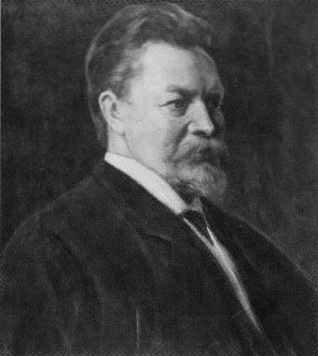Geopolitics
Birth of a Disputed Concept

The Swedish geographer Rudolf Kjellén - WikiCommons
Although it is used nowadays as a synonym for the term ‘international relations’, the word ‘geopolitics’ has a very different semantic origin. At the beginning of the 20th century, the first to use this word was a Swedish scientist and geographer named Rudolf Kjellén in his book The State as a Form of Life (Staten som lifsform). What interested Kjellén was to study the ways in which geography - thus mountains, watercourses, highlands, plains, deserts, and so on - influenced the foreign policy of a given state. According to Kjellén, states lived in a kind of Hobbesian ‘state of nature’, where each state struggled for its own survival. In particular, in order to survive, it was necessary to expand in order to grab land with the best natural resources, so as to sustain one's own nation and people, even at the cost of causing the ruin of another state. In this condition of continuous struggle, geopolitics would have the objective of providing policy makers with the geographical elements to take into account in order to direct their political action. This is because, in Kjellén's view, all these immovable elements would have forced politicians to make certain, reasonably predictable decisions. Kjellén, in fact, was interested in precisely this: the development of scientific knowledge capable of predicting the political action of states by studying how they would be forced to act on the basis of the geographical characteristics of a given space (such as the European continent). To give a practical example: according to Kjellén, two states separated by a mountain range would never have been at war, since the mountain range in question would have prevented an old-style land invasion. Today, the term geopolitics is very controversial and has been heavily criticised by many scholars: on the one hand, it is impossible to claim to predict the actions of states solely in relation to geography, since many variables contribute to the definition of their foreign policy; on the other hand, innovations in technology and information technology (such as cyber attacks) make the geography of states irrelevant in many cases.
Gearóid Ó Tuathail, Critical Geopolitics: The Politics of Writing Global Space, University of Minnesota Press, 1996.
2025-09-29
Giacomo Tacconi
